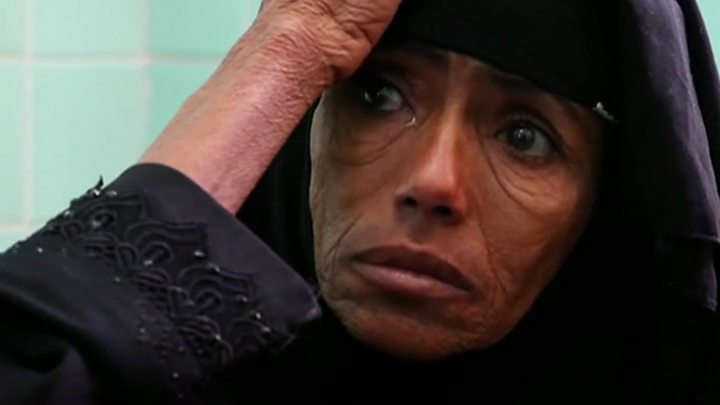Yemen peace talks set to begin in Sweden
UN-sponsored peace talks aimed at ending nearly four years of civil war in Yemen are due to begin in Sweden.
A UN team will work alongside delegations from the Yemeni government and the Houthi rebels at Johannesbergs castle outside Stockholm to enable informal talks due to last a week.
The war has caused the world’s worst humanitarian crisis in recent times.
Thousands of people have died in fighting and millions have been pushed to the brink of starvation.
Consultations are resuming for the first time since 2016. The last attempt at a negotiated peace collapsed in September when the Houthis failed to show up in Geneva.
What will happen?
The latest talks are not expected to deliver a breakthrough. Correspondents say the key aim of this round is to prevent an all-out battle for the rebel-held Red Sea port of Hudaydah where thousands of civilians are trapped.
The UN also hopes to come up with a framework for talks on what a future political solution in Yemen will look like.
Officials said the talks – which are expected to last a week – would be informal, through working groups.
“On some issues it will make sense for the two sides to sit together, on others they will discuss in separate groups,” one source told the BBC.
Representatives of the internationally recognised government – which is backed by a Saudi-led military coalition – flew to Sweden on Wednesday. A day earlier, UN special envoy Martin Griffiths had accompanied the Iranian-backed Houthis to Stockholm.
Small steps towards peace
Analysis by BBC Chief Correspondent Lyse Doucet at the talks
So deep is distrust between warring sides that even showing up for talks for the first time in two years is a significant breakthrough and an achievement for UN envoy Martin Griffiths.
Confidence-building measures which made this happen, including a commitment from both sides to release hundreds of prisoners, have been called a “huge step”.
Stockholm is about small steps. There won’t be talk of ceasefires, even around the key port of Hudaydah, Yemen’s lifeline. The language is of de-escalation and restraint.
The Saudi-led coalition and its Yemeni government allies still believe taking Hudaydah from the Houthis is the best way to bring an end to this war. Houthis aligned to Iran are digging in.
Mr Griffiths wants them to, at least, start talking about a different future, and start taking steps which can ease a dire humanitarian crisis. Yemen desperately needs to avert an even greater disaster. But the logic of war still prevails, and tragically so.
Just before setting off, government representative Abdullah al-Alimi tweeted that the talks were “a true opportunity for peace”.
The head of the Houthi delegation, Mohammed Abdelsalam, vowed to “spare no effort to make a success of the talks” but also warned rebel fighters to remain “vigilant against any attempt at a military escalation”.
In the build-up to the talks, Mr Griffiths successfully negotiated the evacuation of 50 wounded Houthis to Oman for treatment.
The coalition said the move had been agreed as a confidence-building measure ahead of talks in Sweden.
Why is there a war in Yemen?
Yemen has been devastated by a conflict that escalated in early 2015, when the Houthis seized control of much of the west of the country and forced President Abdrabbuh Mansour Hadi to flee abroad.
Alarmed by the rise of a group they saw as an Iranian proxy, the UAE, Saudi Arabia and seven other Arab states intervened in an attempt to restore the government.
At least 6,660 civilians have been killed and 10,560 injured in the fighting, according to the United Nations. Thousands more civilians have died from preventable causes, including malnutrition, disease and poor health.
The World Health Organization warned in October that about 10,000 new suspected cases of cholera were now being reported every week.
Source: Read Full Article



